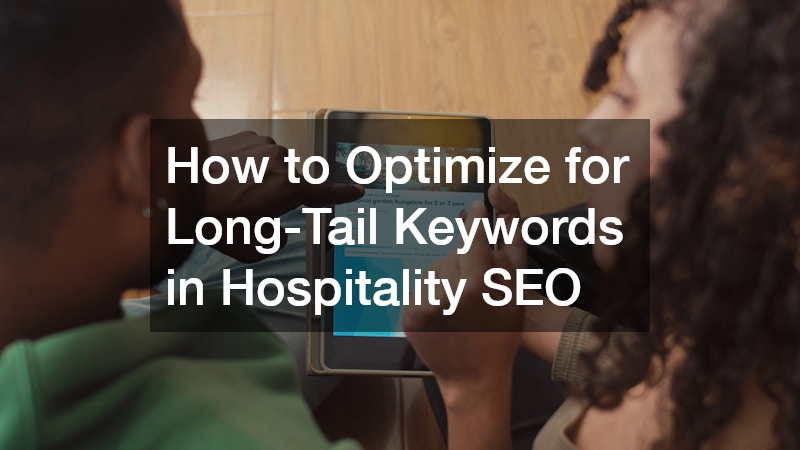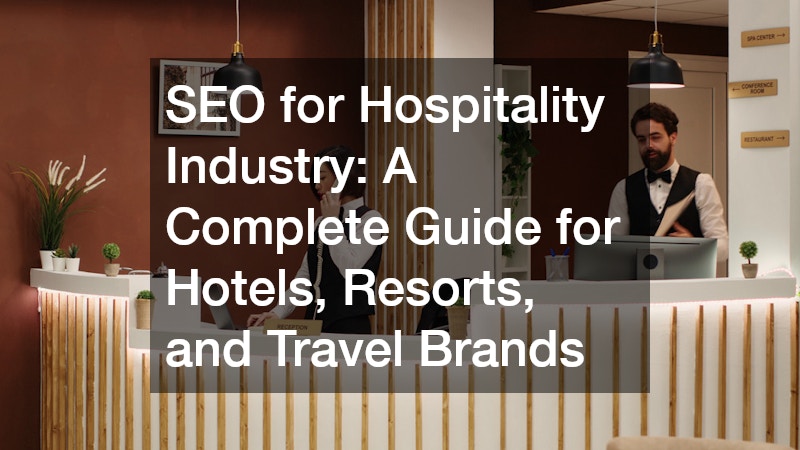In today’s digital-first world, a guest’s journey often begins with a Google search. Whether it’s “beach resort in Palawan” or “budget hotels near Osaka,” search engines play a critical role in shaping travelers’ choices. For hospitality businesses—hotels, resorts, travel agencies, and vacation rentals—mastering SEO (Search Engine Optimization) is not just a marketing trend; it’s a competitive necessity.
While platforms like Expedia and Booking.com dominate the booking scene, direct bookings remain the most profitable. And SEO can help you drive more of them. From optimizing your website to mastering local SEO and harnessing content strategies, this complete guide will break down actionable steps to help hospitality entrepreneurs grow their brand visibility, get discovered, and increase bookings.
What Is SEO and How Does It Apply to Hospitality?
SEO is the process of improving your website’s visibility on search engines like Google. When done right, it helps your site appear higher in search results for keywords your potential guests are using—such as “best resorts in Boracay” or “eco-lodges near Siem Reap.”
Why It Matters for Hotels and Resorts
- Higher rankings = more visibility
- More organic traffic = less reliance on OTAs
- Better user experience = improved conversions
In the hospitality industry, where visual appeal, customer trust, and accessibility matter, SEO not only drives traffic but also enhances credibility and user engagement.
On-Page SEO for Hospitality: Get the Basics Right
Before diving into advanced strategies, make sure your on-page elements are optimized. These directly affect how search engines understand and rank your content.
Key Elements to Focus On:
- Title Tags and Meta Descriptions
Include relevant keywords like your location, property type, and unique features. - Header Tags (H1, H2, H3)
Structure content clearly for readers and search engines. - Keyword Optimization
Use target phrases naturally in your text, avoiding keyword stuffing. - High-Quality Images with Alt Text
Describe your images properly for accessibility and SEO benefits. - Internal Linking
Connect related pages—link your “rooms” page from your “home” and “about” pages. - Mobile-Friendly Design
Most travelers search from their phones—ensure fast loading and intuitive navigation.
Local SEO: The Key to Capturing Nearby and Mobile Searches

Local SEO is vital for hospitality businesses. Guests often search for accommodations based on proximity—think “hotels near Sydney Opera House” or “cheap inns in downtown Cebu.”
How to Optimize for Local SEO:
- Claim and optimize your Google Business Profile
Ensure your name, address, phone number, and website are consistent across listings. - Encourage guest reviews
Respond to both positive and negative reviews to show responsiveness. - Use local keywords
Include city names, neighborhoods, and landmarks in your content. - List on local directories
Submit your business to relevant travel and tourism directories in your area. - Add location schema markup
Help search engines understand your geographical relevance.
Content Marketing and SEO for the Hospitality Industry: A Perfect Match
Content marketing fuels your SEO efforts by driving organic traffic and establishing your brand as a trusted source.
What Kind of Content Works?
- Destination Guides
“Top 10 Things to Do in Bali” or “A Weekend Itinerary for Tulum Travelers” - Travel Tips
Packing lists, safety advice, visa requirements—help your guests plan their trip. - Seasonal Promotions or Packages
Blog about your latest offers and special events. - User-Generated Content (UGC)
Feature guest stories or reviews to build trust and authenticity. - Behind-the-Scenes Blogs
Showcase your staff, sustainability efforts, or renovation updates.
Great content naturally includes keywords, earns backlinks, and improves dwell time—all positive SEO signals.
Technical SEO for Hotels and Travel Brands
Behind-the-scenes optimizations impact how search engines crawl, index, and rank your website.
Critical Technical SEO Elements:
- Mobile Responsiveness
Google uses mobile-first indexing. Ensure your site works flawlessly on smartphones. - Site Speed
Compress images, minimize code, and use a content delivery network (CDN). - SSL Certificate (HTTPS)
Secure websites rank higher and inspire trust. - Sitemap and Robots.txt
Help search engines understand your site structure and indexing preferences. - Fix Broken Links and Redirects
Ensure a smooth user journey with no dead ends.
Tools like Google Search Console, GTmetrix, and Screaming Frog can help you identify and resolve technical SEO issues.
SEO for Hospitality Industry: Strategy Tips for Entrepreneurs
As a business owner, it’s easy to get overwhelmed. But effective SEO doesn’t require a huge budget—it needs a smart strategy and consistent effort.
Actionable Strategy Tips:
- Start with Keyword Research
Use tools like Google Keyword Planner, Ahrefs, or Ubersuggest to identify high-value keywords. - Set SEO Goals
Focus on increasing direct bookings, reducing bounce rates, or growing organic traffic by a percentage. - Create an SEO Calendar
Schedule monthly content posts, technical audits, and performance reviews. - Track Metrics That Matter
Prioritize rankings, clicks, page load time, and conversion rates over vanity metrics. - Outsource Wisely
If you lack the time, consider hiring an SEO expert familiar with the hospitality niche.
The Role of AI, Voice Search, and Mobile Optimization
Modern search behavior is changing. Voice search is growing, and artificial intelligence is shaping personalized search results.
How to Stay Ahead:
- Use Natural Language Phrases
Think in terms of how people talk: “What’s the best beachfront hotel in Phuket?” - Implement Structured Data (Schema Markup)
Helps search engines display rich results, like star ratings and pricing. - Make Your Website Voice-Search Friendly
Use FAQs, short sentences, and a conversational tone. - Optimize for Mobile Devices
Responsive design, fast load speed, and click-to-call features are now essential.
By embracing these trends, you future-proof your SEO efforts and remain discoverable across all platforms and devices.
Link Building and Off-Page SEO Tactics
Backlinks remain one of the strongest ranking signals. Off-page SEO boosts your domain authority and trustworthiness.
Proven Link-Building Tactics:
- Collaborate with Travel Bloggers and Influencers
Offer them a stay in exchange for a review or mention. - Get Listed on Niche Travel Sites
Websites like TripAdvisor, Lonely Planet, and niche blogs can drive both traffic and authority. - Write Guest Posts
Publish on travel and hospitality industry blogs with backlinks to your site. - Join Hospitality Forums and Groups
Share expertise and link back to relevant content. - Create Shareable Content Assets
Infographics, travel stats, or destination guides can attract natural backlinks.
How to Use SEO Tools for Better Results
You don’t need to be a tech expert to make data-driven SEO decisions. Many tools offer insights into rankings, performance, and content gaps.
Recommended Tools for Hospitality Businesses:
- Google Analytics – Track user behavior, traffic sources, and conversions.
- Google Search Console – Identify indexation issues and keyword performance.
- Ahrefs / SEMrush / Ubersuggest – Comprehensive keyword and backlink research.
- Moz Local – Manage your local listings and reputation.
- Yoast SEO (for WordPress sites) – On-page optimization made simple.
Using the right tools ensures you’re not flying blind and can adapt to performance trends.
How to Optimize for Long-Tail Keywords in Hospitality SEO

Long-tail keywords are specific, low-competition search phrases that capture the intent of travelers. Instead of targeting broad terms like “hotel,” you should focus on more targeted phrases like “pet-friendly boutique hotel in Baguio” or “budget resort with private beach in Koh Samui.” These keywords convert better because they match what users are actually searching for at the decision-making stage.
Best Practices for Long-Tail Keyword Optimization:
- Use tools like Ubersuggest, AnswerThePublic, or Google Autocomplete to find long-tail queries.
- Incorporate long-tail keywords into your blog posts, FAQ pages, and landing pages.
- Write specific content that answers questions related to accommodations, local experiences, and amenities.
- Update your keyword strategy quarterly to reflect seasonal search trends.
By focusing on long-tail SEO, smaller hotels and resorts can compete with bigger players and attract niche audiences.
SEO Mistakes to Avoid in the Hospitality Industry
Even well-meaning SEO strategies can backfire if common mistakes are made. Many hospitality businesses unknowingly hinder their search performance by focusing on vanity metrics or outdated practices.
Top SEO Mistakes to Watch Out For:
- Duplicate content across listings and web pages – Google penalizes repetitive content.
- Slow-loading websites with large, uncompressed images – These hurt mobile rankings.
- Over-reliance on booking platforms without investing in your own SEO – You lose control of your digital presence.
- Neglecting local SEO signals – Inconsistent business info can confuse search engines and guests alike.
- Ignoring analytics and tracking – Without data, you can’t improve what you don’t measure.
Avoiding these missteps will help you build a strong, sustainable SEO foundation for long-term growth.
Creating a Monthly SEO Checklist for Hospitality Businesses
SEO is an ongoing process, and consistency is key. A monthly checklist helps ensure you stay on top of both content updates and technical health. Entrepreneurs in hospitality should treat SEO like a maintenance task—just as vital as room service or guest check-ins.
Monthly Hospitality SEO Checklist:
- Audit top-performing pages and identify new content opportunities
- Check for broken links, redirects, and crawl errors using tools like Google Search Console
- Update blog posts with fresh info, seasonal content, or new offers
- Add new images with relevant alt tags, especially if your property has new features
- Encourage recent guests to leave reviews on Google and other directories
- Monitor keyword rankings and traffic to spot trends and adjust strategies
With a recurring checklist, SEO becomes less overwhelming and more manageable—helping you gradually build digital momentum.
Final Thoughts: Build Long-Term Value with SEO
SEO is not a one-time task—it’s an ongoing investment that builds long-term value for hospitality entrepreneurs. In an industry where guest loyalty, visibility, and experience determine success, SEO empowers you to take control of your digital presence.
Whether you’re running a cozy inn or a luxury resort, implementing the principles of technical SEO, content marketing, and local search optimization will make your brand discoverable, trusted, and profitable.


